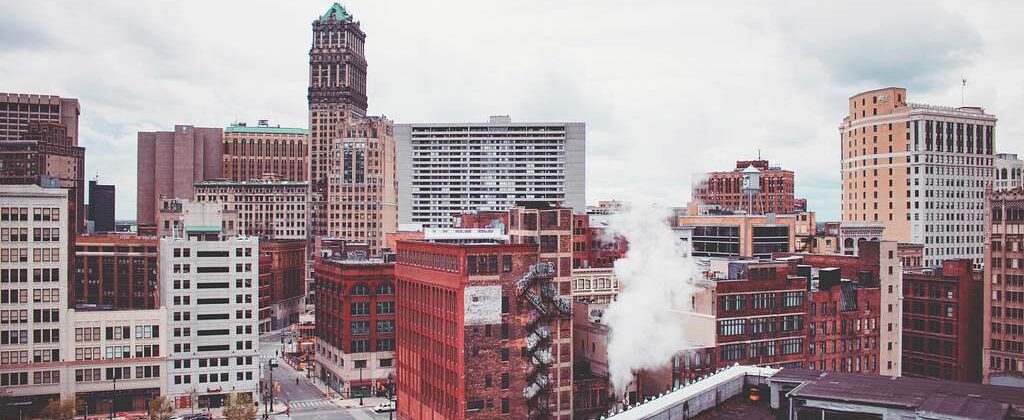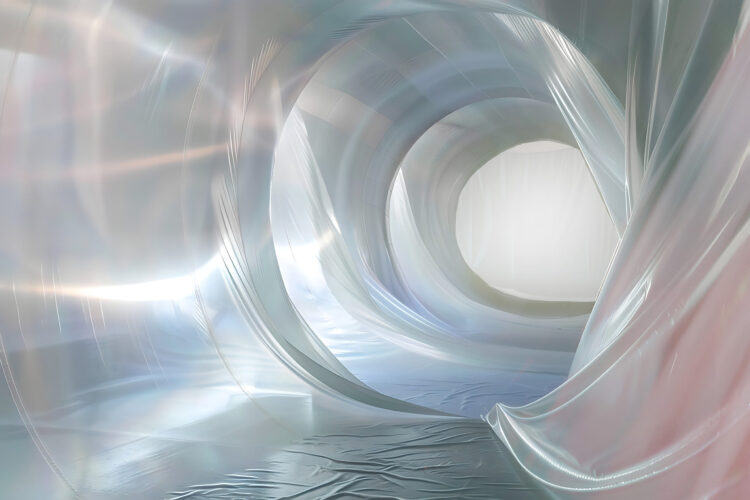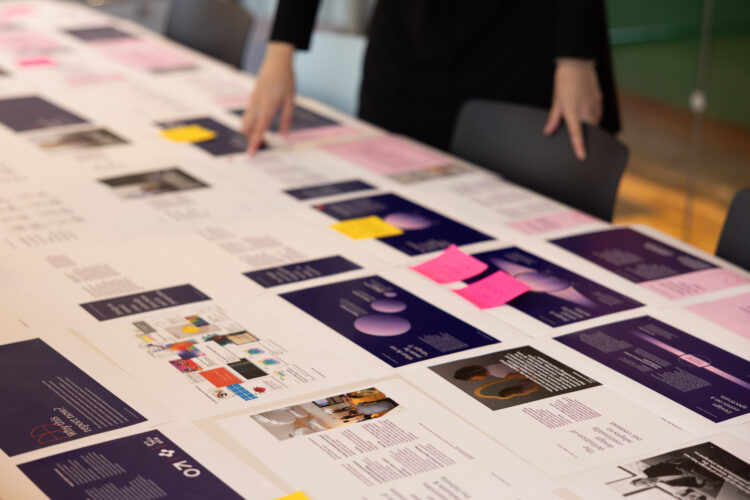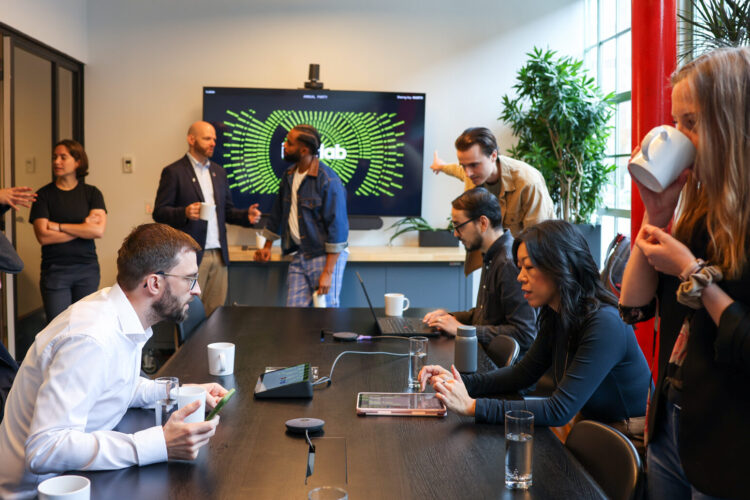Far away from the famous coasts of the USA, in the upper midwest, stands a city with a deep history of innovation: Detroit, Michigan, the famed ‘Motor City,’ home to the giants of the automobile industry. After weathering the challenges of deindustrialization, the city is finding new ways to reinvent itself, thanks to the energy of its longtime residents. For Swiss researchers, startups, or creatives, the city offers an abundance of opportunities – especially in the fields of mobility, community transformation, and design.
Making 21st Century Detroit
Since filing for bankruptcy in 2013, Detroit has undergone remarkable revitalization, experiencing population growth, improved public safety, neighborhood renewal, and an influx of businesses relocating their headquarters to the city.
Just as they did a century ago at the start of the automobile age, entrepreneurs are once again flocking to Detroit to reshape the future of transportation. In 2023, Newlab, a Brooklyn-based incubator, opened its 270,000-square-foot second headquarters in a former book depository designed by acclaimed architect Albert Kahn, built next to the renovated Michigan Central Station on the fringes of downtown Detroit. These two buildings anchor Michigan Central, a newly launched 30-acre technology and culture hub dedicated to reimagining 21st-century mobility, from autonomous vehicle technology to sustainable transportation. Since opening its doors in April 2023, Newlab’s Detroit space has welcomed 106 member companies and approximately 675 individual members from the mobility, transportation, logistics, and climate tech sectors. These startups hail from across Michigan, the nation, and around the world.
The success of Detroit’s revitalization depends on the vibrancy of its communities, including a large African-American population. In the historic Core City neighborhood of Detroit, a newly renovated institution, the LOVE Building, serves as a hub for social justice and creative communities in the area. It is born from the collective desire of six Detroit-based organizations for a permanent, centrally-located, and accessible space. It is home to Allied Media Projects, the Detroit Justice Center, Detroit Disability Power, the Detroit Community Technology Project, Detroit Narrative Agency, and People In Education. The LOVE Building aims to reflect collective development grounded in community needs. Its focus is on creativity, environmental responsibility, community accountability, and preserving the neighborhood that has long been home to Black and Brown residents.
Detroit’s legacy as a global center of mid-century design has also yielded efforts to reestablish its reputation on the field. Since its establishment in 2010, Design Core Detroit has worked to position the city as a renowned global hub for creative talent through its role in organizing Detroit Month of Design. The organization focuses on strengthening and promoting design-driven businesses while highlighting the unique value of Detroit’s design sector. Design Core has played a significant role in generating over 3,000 new jobs in Detroit. It has become the central hub for the city’s design community, hosting events that attract more than 30,000 attendees each year. In 2015, Design Core successfully secured Detroit’s UNESCO City of Design designation, making it the first city in the U.S. to achieve this honor.
A Legacy of Innovation and Culture
The ongoing revitalization efforts in Detroit build on a rich cultural and economic legacy. Detroit was founded as a French military settlement in 1701 to defend colonial fur trading interests on land belonging to the indigenous peoples of the three Anishinaabe nations of the Council of Three Fires: the Ojibwe, Ottawa, and Potawatomi. It would be a century before Swiss inventor François Isaac de Rivaz developed the first internal combustion engine automobile, the technology that would eventually catapult Detroit to its iconic global status as ‘Motor City.’
The automotive industry positioned early 20th century Detroit as a global hub, symbolizing opportunity, hope, and the American Dream. Henry Ford and other automakers, including Swiss-born Louis Chevrolet, introduced new systems of mass production and consumption that changed American and global expectations of prosperity, launching a new middle class. By 1950, Detroit had become one of the world’s 20 largest urban areas, before industry decentralization started to take hold, resulting in population and economic losses.
Detroit’s industrialization also brought a ‘great migration’ of African Americans from the US South to fill the factories. These Black communities profoundly influenced Detroit, establishing it as a center for progress in civil rights, business, and entertainment. The city has been indelibly shaped by the resilience and resistance of Black individuals who fought against oppression in countless ways, from rebellion to legal action for freedom – endowing a spirit of community strength that carries into the 21st century.
Culture has been a key part of this history. In music, it was Berry Gordy and Black musicians that in the 1960s transformed it into “Motown” – and made the eponymous record label the largest black-owned company in America. In the mid-1970s, Black artists in Detroit pioneered a new, innovative form of electronic dance music, which eventually evolved into techno.
Meanwhile, in architecture and design, Detroit became a leading global city for the mid-century modern movement. Michigan attracted pioneering architects such as Eero Saarinen, Albert Kahn, and Minoru Yamasaki, who influenced global modernism. The city continues to embody its legacy as a global center for culture and creativity through organizations like the Emergent Strategy Ideation Institute and festivals like Detroit Month of Design.
Detroit showcases a remarkable collaboration across various fields, highlighting a unique blend of community, culture, history, and urban transformation. Anyone looking to be part of Detroit’s story – whether local, national, or international – can discover its history and embrace its spirit of creativity and resilience.
These impressions are based on the October 2024 visit of Head of Arts and Creative Industries Marc Streit. Thank you to Giroux Impact by former ETH Zurich researcher Jennifer Giroux, EXLTERRA by Frank Muller, the Honorary Consul of Switzerland in Detroit, and the LOVE Building, along with Design Core and the Mayor’s Office for Development and Economic Transformation, and the many other individuals and organizations Marc encountered, for making this enlightening trip possible and fostering connections throughout Detroit’s ecosystem.



